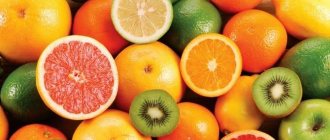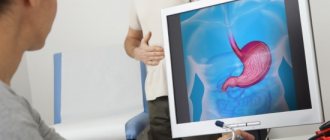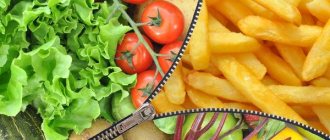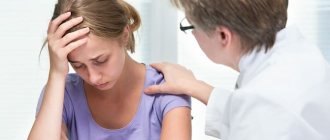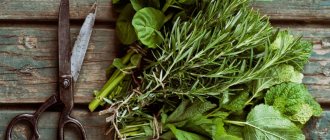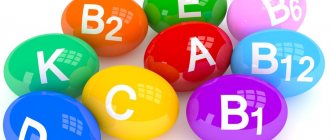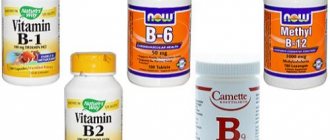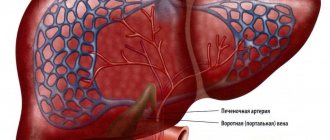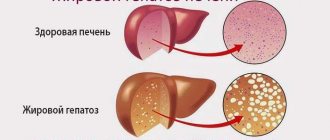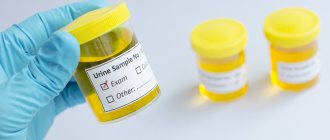Liver diseases are a serious problem of our time, and in the vast majority of cases they affect young people.
Various vitamins help change the situation and increase the body's resistance to such diseases. They not only strengthen liver cells, but also significantly facilitate the course of most pathologies, which makes them indispensable elements of complex therapy. After reading this article, you will learn what vitamins are needed for the liver.
The effect of vitamin deficiency on the liver
Vitamin deficiency is a disease that develops due to a lack of certain vitamins in the body. It would seem that the pathology is completely harmless, because vitamin deficiency in the initial stages only causes peeling of the skin, disruption of the structure of the nail plates, and general weakness. In severe cases, watery eyes, joint pain, swelling, apathy, retinitis pigmentosa and depression are observed.
Doctors say that the pathology causes serious damage to the liver, since the organ cannot fully function due to a lack of a number of nutrients and vitamins. Vitamin deficiency is especially dangerous for people who already have chronic pathologies of the hepatobiliary system.
So, what is the danger of vitamin deficiency, and how does it affect the liver? Here are a number of main points:
- In the presence of chronic viral hepatitis, vitamin deficiency leads to the fact that the inflammatory process begins to occur more acutely. Due to the fact that vitamin deficiency disrupts the functioning of the immune system, it becomes almost impossible to cure hepatitis of infectious etiology.
- With vitamin deficiency, lipid metabolism is disrupted. People with this disease experience increased levels of low-density lipoprotein (bad cholesterol). This is dangerous because fatty hepatosis can develop, a pathology in which hepatocytes undergo fatty infiltration. Untimely treated hepatosis develops into cirrhosis over time.
- A lack of nutrients and vitamins leads to the fact that the liver ceases to produce sufficient amounts of bile. As a result, digestive disorders appear.
- Vitamin deficiency negatively affects protein metabolism. The liver is involved in the synthesis of proteins that are necessary to maintain essential metabolic processes.
- With vitamin deficiency, the cardiovascular system functions worse. There are cases where the pressure in the portal vein increased due to illness. This is very dangerous, since increased pressure in it can even lead to internal bleeding.
Also, with severe vitamin deficiency, the detoxification function of the liver is impaired, as a result of which a person may develop acute intoxication.
How to recognize the problem
The liver is the largest gland of the digestive system, which is responsible for the condition of the entire body. It performs many different functions, such as cleansing the blood of toxins, activating bile acids, and controlling metabolism. Due to the influence of negative factors, the condition of the organ can deteriorate significantly, but people understand this too late. The fact is that the liver begins to hurt only if the disease becomes advanced. Until then, there may be no obvious pathological symptoms.
The condition of organs often worsens due to bad habits, including poor nutrition. In addition, drug intoxication and congestive inflammatory processes lead to the problem. If problems with the liver appear, then you will need to take care of its restoration, for which there are different methods. In particular, it will be necessary to enrich the body with vitamins that are considered essential.
If your liver condition worsens, you may experience the following symptoms:
- Frequent allergic reactions.
- Depressive and apathetic state.
- Pain in the area of the right hypochondrium.
- Darkening of urine.
- The appearance of acne, red spots, pigmentation.
- Migraine.
- Bitter taste in the mouth, which is especially pronounced in the morning.
- The appearance of dark circles under the eyes.
- Nausea and unpleasant odor from the mouth.
- Jaundice or gray tone of the dermis.
If there is at least one pathological sign, care must be taken to improve the condition of the liver. You will need to drink more water - about 2 liters per day. Additionally, sorbents and vitamin complexes will be useful. Only a doctor can make a diagnosis, having previously referred the person to a series of examinations. Depending on the disease, the medical specialist will prescribe specific treatment. In any case, a person will need liver vitamins to maintain normal functioning of the body.
What vitamins are needed for normal liver function?
We have already talked above about what vitamins are contained both in the liver and in the body as a whole. Let us repeat that the liver stores reserves of water-soluble and fat-soluble vitamins, which are used as needed.
The liver also contains glycogen, a derivative of glucose. It is used when the body lacks energy. If glycogen is not completely used up, it turns into fat deposits.
So, what vitamins are needed to maintain normal functionality of the liver and gall bladder. According to experts, the main ones are:
- Vitamin C (ascorbic acid). The most important element. It is vitamin C that is involved in detoxification processes. It is necessary to cleanse the blood of various kinds of toxins. Ascorbic acid is also responsible for the functionality of the immune system, stimulates the synthesis of interferon, inhibits the process of glycation of hemoglobin, and inhibits the conversion of glucose into sorbitol. The element is necessary for the synthesis of collagen, tryptophan, and corticosteroids. Ascorbic acid is also important because it is involved in the process of converting cholesterol into bile acids, which make up bile.
- Groups B (B1, B2, B5, B6, B7, B9, B12). This group also includes vitamin PP/B3 (nicotinic acid). Why are these elements needed? In fact, B vitamins do a huge amount of work. They participate in metabolic processes, are responsible for the absorption of proteins, fats and carbohydrates, are responsible for the formation of hemoglobin and unsaturated fatty acids, and regulate the functioning of the central nervous system. The elements also respond to the synthesis of nucleic acids, cell division, the formation of red blood cells, and the development of the immune and circulatory systems. With a lack of B vitamins, the detoxification function of the liver is disrupted, as well as protein and lipid metabolism.
- Vitamin E (tocopherol acetate). He is very useful and necessary. Vitamin E is responsible for protecting cell membranes from oxidation and preventing oxygen from contacting unsaturated lipids. The element is necessary to maintain lipid metabolism and other important metabolic processes. Tocopherol acetate has a membrane-stabilizing effect, and it is simply necessary for people who have hepatitis, fatty liver disease or cirrhosis.
- Vitamin A. Also very important. It synthesizes enzymes, which, in turn, are involved in the formation of taurine, liver enzymes (alkaline phosphatase, GGT, AST, ALT), sulfocerebrosides. Vitamin A also performs glycosylation of polypeptide chains, synthesizes sex hormones, activates receptors for vitamin D, and synthesizes rhodopsin. With a deficiency of this element, digestion and the synthesis of liver enzymes are disrupted.
- Vitamin D (cholecalciferol + ergocalciferol). The main function of vitamin D is the development of bone tissue and the prevention of rickets/osteoporosis. However, that's not all. The element is necessary for the absorption of nutrients, maintaining normal lipid and protein metabolism. Hypovitaminosis D is fraught with digestive disorders, liver fibrosis and fatty hepatosis.
Rules for taking vitamins
To maintain liver health, you need to regularly consume special vitamins. The following substances have significant benefits for the organ:
- vitamin E;
- thiamine;
- pyridoxine;
- cyanocobalamine;
- riboflavin.
The listed vitamins for the liver normalize metabolic processes in cells, increase the organ’s resistance to adverse factors, and also contribute to its rapid recovery. Before you start taking liver vitamins, remember the following rules:
- Vitamins are not a panacea. They help to increase the effect of general therapy and also help restore natural immunity, but they are not able to cure a serious disease.
- Vitamins should be taken even if the liver does not hurt. This organ contains a minimum of nerve endings, so the first signals for help in the form of pain may reach the brain too late.
- To maintain health, take vitamins in courses. The best option is to repeat the course of vitamins twice a year.
Vitamins for hepatitis C or any other form of pathology should be used as prescribed by a specialist and in the dosages specified by the doctor.
Indiscriminate use of substances can increase stress on the organ.
Which products contain the necessary elements?
A person should receive all the necessary nutrients, including vitamins, from food.
Let's take a closer look at which foods contain the necessary vitamins to maintain normal liver function.
For ease of reading, we will use a table.
| Vitamin. | Where is it kept? |
| C. | The best sources of ascorbic acid are dill, wild garlic, spinach, rowan, orange, passion fruit, mango, tomato, onion, pear, banana, apple, avocado. Vitamin C is also found in products of animal origin, namely beef liver, veal liver, and cow's milk. |
| Group B. | Group B vitamins are found in cereals, black and white bread, green peas, nuts, cereals, yeast, egg yolks, green vegetables, and citrus fruits. Also sources of elements are meat by-products - pork and chicken kidneys, heart, liver. |
| E. | The best source is vegetable oils (olive, sunflower, pumpkin, corn, apple). Also, high concentrations of tocopherol acetate are observed in apples, fresh peas, peanuts, almonds, carrots, radishes, and potatoes. |
| A. | A lot is found in Chinese vegetables (daikon, momordica, okra, okra). Also good sources of vitamin A are broccoli, green onions, peas, peaches, clover, rose hips, bearberry, and sage. The element is found in some products of animal origin, including fish oil, beef liver, caviar, butter, cheese, egg yolks, cottage cheese, sour cream. |
| D. | As you know, vitamin D begins to form under the influence of ultraviolet rays from sunlight. But the element is also found in some food products, namely kelp, brown algae, butter, cheese, caviar, yeast, and mushrooms. |
Nutrition and Liver Health
The liver has an important function - detoxification of the body.
The liver is a universal filter that filters the blood continuously throughout our lives, removing toxic substances from the body. This is where the detoxification system works. Therefore, when we want to cleanse the body, we must support the liver. The liver is one of the key organs that cleanses our internal environment. For good liver function, we need vitamins A, B, E, C, D, K, PP, lipoic acid. With a lack of vitamin C in the body, metabolic processes slow down and liver cells become more vulnerable. Vitamin E protects liver cells from destruction. Many people are allergic to pharmacy vitamins, so you can replace them with natural vitamins - Super Complex, thereby satisfying the daily need for vitamins not only for the liver, but also for the normal functioning of the whole body.
Multivitamin complexes
Hepatrin
A person should obtain microelements and vitamins from food. But it happens that diet correction is not enough to relieve vitamin deficiency, and then patients are prescribed specialized medications.
Hepatrin is considered a good multivitamin complex. It can be purchased at any pharmacy without a prescription. The average price of one package is 400 rubles for 30 capsules. The medicine is produced by the Russian pharmaceutical company Evalar.
How to take the product? The optimal dose is 1 capsule/2 times a day. The course lasts at least 1 month. Doctors recommend taking Hepatrin for at least 2-3 months. The hepatoprotector should not be used by children under 12 years of age, as well as during pregnancy and lactation.
Nutrilite Liver Active
Doctors leave a lot of good reviews about a drug called Nutrilight Liver Active. It is sold on sites like IHERB and in stationary pharmacies. The average cost of one package of medicine is 1,800 rubles. Manufactured by AMWAY.
The product contains B vitamins (B1, B2, B3, B5, B12), milk thistle extract, dandelion and turmeric extract. Nutrilight has hepatoprotective, choleretic, immunomodulatory, hypolipidemic and anti-inflammatory effects.
Therapeutic effects of a multivitamin complex:
- Stabilization of lipid metabolism. The components of the drug reduce the level of bad cholesterol in the blood, reduce the saturation of bile with cholesterol and prevent the formation of cholesterol stones in the gall bladder.
- Stabilization of bile synthesis and passage.
- Relief of inflammatory processes in the organs of the hepatobiliary system.
- Cleansing the liver of toxins.
You can take tablets for both therapeutic and preventive purposes. The optimal dose is 1 tablet/day. The course lasts 1 month, if necessary it is repeated every 3-4 months.
Nutrilight Liver Active is contraindicated for people with intolerance to the active ingredients, children under 12 years of age, pregnant and lactating women.
Blocking the development of liver fibrosis:
• Elimination of the cause of the disease, antiviral drugs - According to D Arco • Immunomodulators - Licorice • Vitamins for the liver • Cytoprotectors - Lecithin
Liver tissue lacks pain receptors. Even hepatitis can be asymptomatic. Therefore, it is best to take care of your health in advance. Take natural vitamin and mineral complexes, monitor your diet, weight, and lead a healthy lifestyle.
Recommendations of Ph.D. NSP company Lysikova Yu.A.
Inositol, or vitamin B8
This substance can dissolve excess cholesterol and normalize the flow of bile. Effective for those patients who suffer from bitterness in the mouth in the morning and heaviness in the right hypochondrium.
In some cases, inositol can cause an allergic reaction (skin itching, urticaria, dermatitis), so you should start taking it with small doses. If the body reacts normally, you can increase the intake to 1 g per day. This vitamin for the liver is most effective in complex treatment, and not as an independent remedy. You can combine its use with hepatoprotectors, essential phospholipids, and amino acids.
Inositol can be consumed not only in tablets, but also with food. High amounts of it are found in lentils, raw carrots, grapes, peanuts, grapefruit, and wild rice.
Medicinal plants: a source of vitamins
Fats are a very important type of nutrient for the liver. Fats are saturated and unsaturated (low and high density). They act as a supplier of energy to the body’s cells, regulate the supply of water, amino acids, salts and carbohydrates to the body, and also accelerate the removal of breakdown products from liver cells.
Essential fats are found in: nuts, cheese, fish, vegetable oil.
Proteins are the main building material for the human body (organs, skin, muscles). The lack of this type of nutrients leads to health problems, because proteins take part in the reproduction and growth of liver cells.
Products containing proteins: meat, fish, cottage cheese, eggs, beans and various additives.
Carbohydrates
Carbohydrates are a source of energy for the body. Carbohydrates consist of essential components for the overall health of the body: carbon, oxygen, hydrogen.
Carbohydrates in foods: honey, sugar, legumes, asparagus, cucumbers, garlic, broccoli and potatoes.
The Liver and Its 13 Favorite Foods: Healthy Liver Foods That Cleanse and Protect It
Many harmful substances pass through the liver, which leads to liver disease. Find out which foods for your liver will help it become cleaner!
The liver keeps our body clean. All harmful substances pass through it, which are subsequently eliminated. But when there are too many of them, the organ cannot cope with the load, which leads to liver disease. And liver treatment in this case is not only about following the doctor’s instructions. Pay attention to healthy foods for the liver that will help it cleanse and recover.
Liver and how to cleanse it
Did you know that the liver is an important cleansing center for the body? Harmful chemicals from anything you ingest or inhale—food, drinks, medications, or smoke—are transformed into less harmful, water-soluble substances in the liver. This transformation occurs in two stages, after which they are removed.
But during the first stage of the cleansing process, free radicals are formed, which ultimately destroy cells and cause inflammation. If free radicals are not counteracted and the damage they cause is not corrected, they will negatively affect the liver over time.
To cleanse the liver, you need antioxidants. Also important are liver-healthy foods that lower cholesterol, especially bad LDL cholesterol, and triglycerides. We present to you healthy products for the liver - herbs, drinks and spices - that will help it perform its cleansing functions, protect it from destruction, and speed up liver healing.
Healthy foods for the liver
1. Broccoli and Brussels sprouts are the best protection and treatment for liver damage
There is a lot of common sense in eating liver-healthy foods like green vegetables. Especially cruciferous vegetables - broccoli, Brussels sprouts, cabbage, watercress, cauliflower. They all contain beneficial chemicals, such as sulforaphane, indole-3-carbinol, and 1-cyano-2-hydroxy-3-butene, that block cancer-causing chemicals.
They also increase levels of natural antioxidant enzymes necessary for the liver detoxification process. When the body is overloaded with toxins, the level of natural antioxidants decreases, thereby slowing down the liver cleansing process.
Excessive consumption of processed foods and foods containing large amounts of sugar also increases the levels of LDL cholesterol and triglycerides (a type of fat) in the body. And since the liver helps eliminate excess LDL cholesterol, excess LDL cholesterol can deform it. In turn, the liver accumulates triglycerides, causing fatty metamorphosis, or non-alcoholic fatty liver disease (NAFLD).
This increases the risk of inflammation of the organ (steatohepatitis), which causes liver diseases such as cirrhosis, liver failure and cancer. Liver foods such as cruciferous vegetables contain cholesterol-like compounds called phytosterols. They can reduce both high cholesterol and triglycerides that the liver has accumulated.
Show how much cabbage to eat for the liver
Your liver will appreciate 1.5 to 2.5 cups of dark green vegetables per day, including cruciferous vegetables. If you suffer from hypothyroidism, cook these vegetables before eating.
2. Beetroot is the best prevention and treatment for the liver from oxidative stress
The liver can benefit a lot from this root vegetable. Betalain, an antioxidant pigment in beets, along with flavonoids, phenolic acids and vitamin C, provide liver healing and protection against oxidative stress (carcinogenic agents).
If beets regularly appear on your table, be prepared for the fact that they will rebuild your metabolism. Reduces the activity of enzymes that increase free radicals during detoxification. Your liver will be protected from toxic compounds.
Show how much to eat beets for the liver
Juice from one large beet is safe for daily consumption. Saturate your liver with juice 2-3 days a week.
3. Tuna and salmon are excellent prevention and treatment of liver in NAFLD
Omega-3 (polyunsaturated) fatty acids can be found in marine fish such as tuna, salmon, trout, and mackerel. Just a few of the fish that are good for the liver are named. These are well-known preventive products for the liver, which also prevent the formation of triglycerides in it.
They can even reduce liver fat in people with NAFLD and high cholesterol and triglycerides. Omega-3 fatty acids also increase levels of good HDL cholesterol. Other liver-healthy foods and sources of omega-3 fatty acids include fortified eggs, walnuts and avocados. But including only them in your diet will not be enough. You also need to minimize your intake of omega-6 fatty acids, such as vegetable oils.
Show how much fish to eat for the liver
The American Heart Association recommends eating at least 2 servings (about 100 grams per serving) of fatty fish per week unless you have heart problems. If you have high triglyceride levels, you can take 2-4 grams of fish oil daily.
4. Amla - treatment of the liver in patients with jaundice, with an enlarged liver and NAFLD
Amla (Emblica officinalis) is a natural liver health remedy. Treatment of an enlarged liver in Ayurveda is carried out precisely with its help. Researchers have found that this vitamin C-rich fruit treats various liver diseases such as jaundice. Since amla lowers cholesterol and triglyceride levels, it is beneficial for liver disease such as NAFLD.
Show how much amla to take for the liver
Our liver accepts both fresh fruit and powder well. The standard dose used in the experiments was 1-3 g of fruit powder. You can also eat a piece of fruit a day - fresh or in juice form. It is best to spread its consumption over the whole day.
5. Berries are the best foods for the liver, including the prevention of NAFLD
Cleanse your body in a natural way: eat foods for the liver, that is, a lot of berries. They are rich in polyphenols and anthocyanins, antioxidant pigments that give them their color. These nutrients are powerful anti-inflammatory agents.
One study found that liver-healthy foods such as cranberries, blackcurrants and blueberries were particularly effective in preventing fat accumulation in the liver. In particular, cranberries significantly reduced body fat reserves in animals eating a high-fat diet.
Show how much to eat berries for the liver
Liver treatment will be provided by a standard serving of berries - half a cup of frozen or fresh fruit, or 113 g per day. But there is no specific upper limit here. Despite this, heavy consumption of berries may cause side effects for those taking blood thinners and diabetes medications.
6. Grapefruit and grapes - foods for the liver and its smooth functioning
Liver foods such as grapefruit and grapes provide liver cleansing and healing. Grapefruit contains naringenin and naringin. These antioxidants keep the liver healthy by effectively metabolizing alcohol and preventing any harmful effects it may have on the liver. Red and blue grapes contain another antioxidant called resveratrol, which ensures its smooth functioning.
Show how much to eat grapefruit and grapes for the liver
Grapefruit and grapes are foods for the liver, for which there are no clear recommendations for consumption. But it is better to eat at least a cup of these foods every day. Avoid consuming grapefruit if you are taking medications for cholesterol, high blood pressure, anxiety, insomnia, allergic reactions, and medications used in neuralgia and psychiatry.
7. Prickly pear – treatment of the liver from the harmful effects of alcohol
Prickly pear is a type of edible cactus that is used in traditional medicine and provides healing for the liver. One study found that this plant extract reduced hangover symptoms, such as nausea, dry mouth, and loss of appetite. The positive effect was enhanced when the extract was consumed before drinking alcohol.
Since the liver breaks down alcohol, the researchers expected to see the same effect of the extract on it. As a result, they found that prickly pear extract reduced inflammation, which often appears after drinking alcohol.
Another study found that eating the extract after drinking alcohol normalized enzyme production and cholesterol levels in the liver. In addition, ountia reduces alcohol-induced oxidative damage to the liver. However, more human studies are needed to fully understand the effects of prickly pear on the liver.
Show how much to consume prickly pear extract for liver
So far, all studies agree that prickly pear extract (on average 1600 mcg) has the best effect on the liver. Although it is quite difficult to say how much is actually needed. In this case, you should adhere to the norm of 240 ml or 227 g per day, unless your doctor prescribes a different dosage.
8. Nuts – foods for the liver that will prevent NAFLD
The content of healthy fats and nutrients, including vitamin C, makes nuts healthy foods for the liver. One study examined the effects of nuts on NAFLD patients over a 6-month period. It found that regular consumption improved liver enzyme levels.
Another study found the following. Men who ate fewer nuts had a higher risk of developing non-alcoholic fatty liver disease compared to those who ate more nuts.
Show how many nuts to eat for your liver
To improve liver health, you need to eat a handful of nuts (about 30 grams) every day.
9. Olive oil – will provide liver treatment in patients with NAFLD
To keep your liver healthy and functioning well, replace sunflower oil with olive oil. One study that looked at people with NAFLD found that daily olive oil consumption improved liver enzyme levels. Participants also noted decreased fat in the organ and improved blood flow to the liver.
Show how much olive oil to use for the liver
According to research, it is recommended to consume about 1 tablespoon (6.5 ml) of olive oil daily.
10. Ginger – treatment of the liver of patients with NAFLD and after taking medications
Ginger not only adds spice to your food, but is also good for the liver. This root, with gingerols and shogaols, acts on the digestive tract, increasing enzyme production and improving metabolism and blood flow.
Ginger reduces oxidative damage caused by free radicals due to exposure to toxic environmental components or long-term medications. It also increases the level of natural antioxidants in the blood. And this provides effective liver treatment.
Because ginger reduces triglycerides, total cholesterol, and LDL cholesterol, it is an excellent dietary supplement for people at risk of developing NAFLD.
Show how much ginger to use for the liver
For a healthy adult, consuming 4 grams of ginger is safe, either raw, cooked, or in tea. For pregnant women, it is better to limit yourself to 1 gram.
11. Garlic and onions are foods for the liver in case of alcohol damage
Liver-friendly foods such as onions and garlic are beneficial for liver health. The sulfur compounds they contain, which give them their characteristic odor, stimulate the liver enzymes necessary for liver cleansing. They also contain antioxidants - flavonoids, which can prevent and stop the functioning of free radicals.
Garlic provides effective liver treatment. It reduces its damage associated with the influence of alcohol (alcoholic steatohepatitis). And it doesn’t matter in what form you use it – raw garlic, garlic oil, or aged black garlic extract. Onions showed the same effect.
Show how much garlic and onions to eat for the liver
In most studies, garlic was consumed in amounts of 600-120 mg per day. At the same time, a few cloves a day will prevent liver disease. Be sure to crush it before eating or cooking to release the bioactive sulfur compound allicin. Onions can be eaten without any restrictions.
12. Tea and coffee are the best foods for the liver in patients with cirrhosis
Coffee lovers, there's finally a study out that says our favorite morning drink is good for you. If you are concerned about liver disease, moderate coffee consumption may help slow the progression of the disease.
For patients scheduled for liver biopsy, caffeine will reduce the development of cirrhosis. While it's not entirely clear why caffeine helps, we do know that it reduces the risk of developing liver disease. And thanks to caveolae and cafestol, coffee also reduces the risk of liver diseases such as cancer.
All recent studies have shown that regular consumption of about 3 cups of coffee and herbal tea results in less liver scarring. Its continuous scarring, provoked by inflammation and cell death, leads to liver disease such as fibrosis.
Show how much tea and coffee to drink for the liver
We don't need liver disease. Two cups of coffee a day will help keep them at bay. Drinking more than five cups is not recommended. Also remember not to drink coffee two hours before bed.
13. Turmeric - for the prevention of fat, inflammation and liver disease
Our list would not be complete without the anti-inflammatory and healing properties of turmeric. It has provided effective liver treatment for centuries in Ayurveda and Chinese medicine.
Curcumin from turmeric prevents the accumulation of fat in the liver - this has been found in several studies that were conducted on animals. Experimental animals that had curcumin in their diet had lower cholesterol levels and triglyceride concentrations in the liver. In addition, it increased the level of natural antioxidants responsible for detoxification processes.
Show how much to use turmeric for liver
Consume 1.5-3 g of turmeric root powder daily. If you have inflamed intestines, reduce the dose to 1-1.5 g. And to improve the absorption of curcumin, eat the spice with black pepper.
Despite the fact that the liver is a fairly strong organ, it needs our support. After all, sometimes treating the liver may be the last thing to do; the main thing is to avoid liver disease. And not only the doctor’s advice will help us with this. If you have healthy liver foods on your table, you will be healthy!
PS Share this post with your friends!
Source
VKontakte
"Gepaton-2": the effect of taking it
This complex incorporates all the principles of liver healing, collected over centuries in folk recipes. The packaging specifically states that the greatest benefit from taking the capsules will be from February 10 to May 18: it is during this period that liver cells are supposedly most susceptible to treatment. Modern medicine, of course, treats such statements with a grain of salt. Nevertheless, the excellent composition of Hepaton-2 makes it vitamins that are beneficial for the liver.
Regular intake of capsules stimulates anaerobic metabolic processes, increases blood supply to internal organs, reduces cholesterol levels in the blood, increases the regeneration of damaged tissues, and stabilizes the activity of the endocrine glands.
Composition of the drug:
- retinol;
- thiamine;
- riboflavin;
- pyridoxine;
- cyanocobalamin;
- a nicotinic acid;
- tocopherol;
- plant extracts of immortelle, mint, yarrow, burdock, beetroot, dandelion, tansy, St. John's wort, solyanka, calendula;
- amino acids: glutathione, glutamine, methionine;
- lecithin;
- phospholipids.
Capsules should be taken on an empty stomach, five to ten minutes before meals in the morning and evening. The composition of the drug can provide a truly high therapeutic effect, but only on the condition that the patient adheres to a healthy diet and completely eliminates alcoholic beverages.
